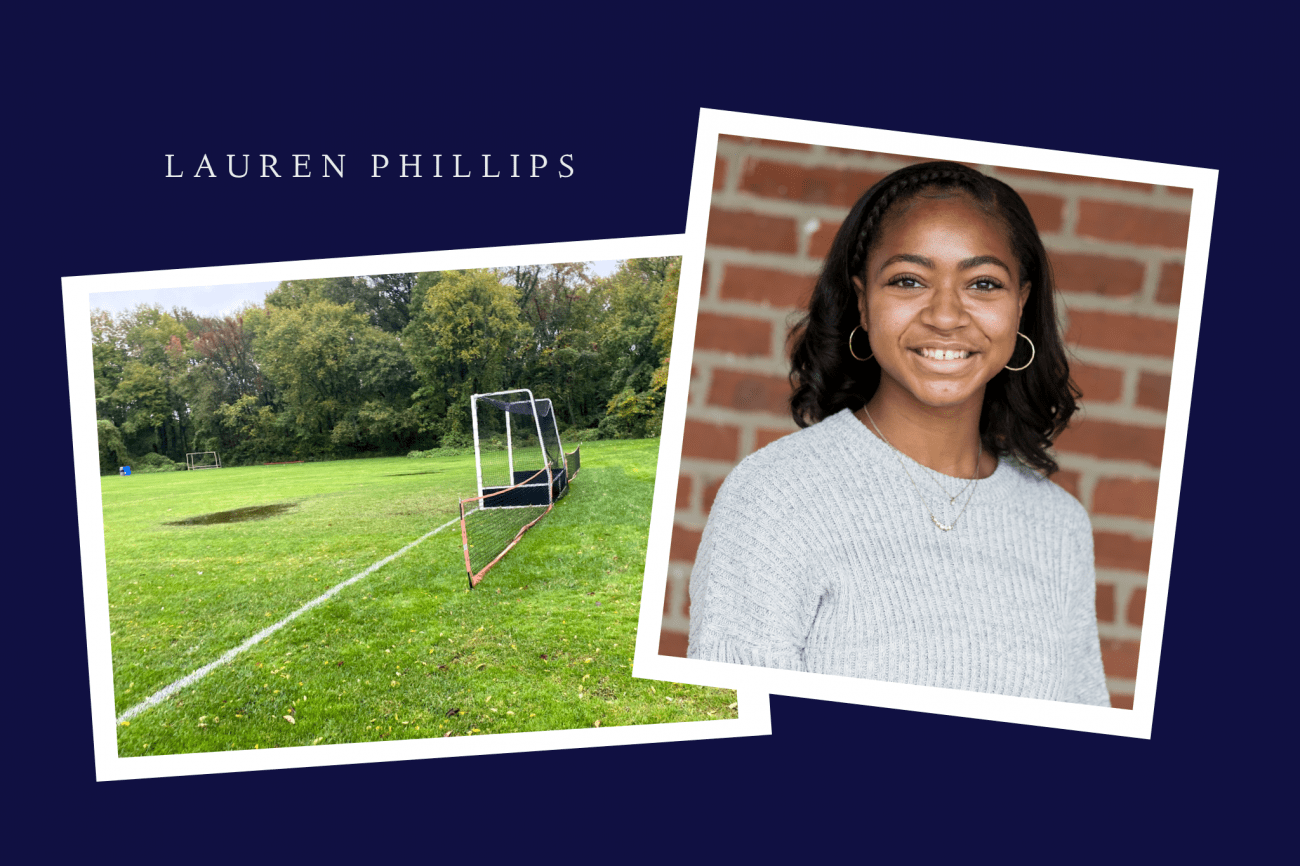Capstone Project Highlight Series: Lauren Phillips ’21

Each year, a number of junior and senior class members choose to participate in the MFS Capstone Program. Designed to challenge students who wish to pursue advanced study in a particular field, the program asks participants to produce scholarly work by engaging in independent research and/or creative development under the guidance of an MFS faculty member. This series highlights recently completed projects of the 18 senior students in the program.
If you have ever walked on the Moorestown Friends School athletic fields after a rainstorm, you may have noticed that certain portions tend to flood. Lauren Phillips ’21 sought a solution for the water collection on the fields, and in other areas of campus, that could assist with draining, water conservation, and reuse.
Using LEED (Leadership in Energy and Environmental Design) guidelines, Lauren began her research by creating water gauges for four locations of the campus – the athletic fields, the parking lot, Hartman Hall, and the Dining Hall Commons. These water gauges helped her to assess the flooding and determine possible solutions by showing elevation, amount of rainfall, and flooding frequency. Her findings were as follows, “the areas with the most mud and largest puddles were near the athletic fields and parking lot, while the Hartman Hall and Dining Hall areas were drier and had few puddles. Unlike my previous belief that each region would receive equal rainfall, I have learned that areas receive varying amounts of rainfall, which are not always equivalent.” With data to work from, Lauren went on to look at topographical maps of the campus and dove into landscaping and restructuring solutions that could be useful for the MFS campus. These included deep root plants (i.e. red maple trees, river birch trees, bald cypress trees, highbush blueberry bushes, or winterberry bushes – all native to New Jersey) and rainwater harvesting (a collection of roof gutters, rain tanks, pumps, and downspouts to collect rainwater for reuse.)
Moving forward, Lauren recommended more sustainable water reuse and conservation efforts around the campus. She ended her project with an impact statement; “Conserving water is crucial because it reduces the amount of pollution in our local and global water bodies… we must conserve water to maintain our limited supply and provide every community with access to clean water. Creating sustainable water systems is crucial to the health and longevity of our [MFS] community. Both finding solutions to environmental issues and educating others about sustainability are important to me because attending a Quaker school has taught me that it is essential to prioritize sustainability because it betters our community through ethical stewardship.” Read more about Lauren’s research and solutions on her capstone page.
